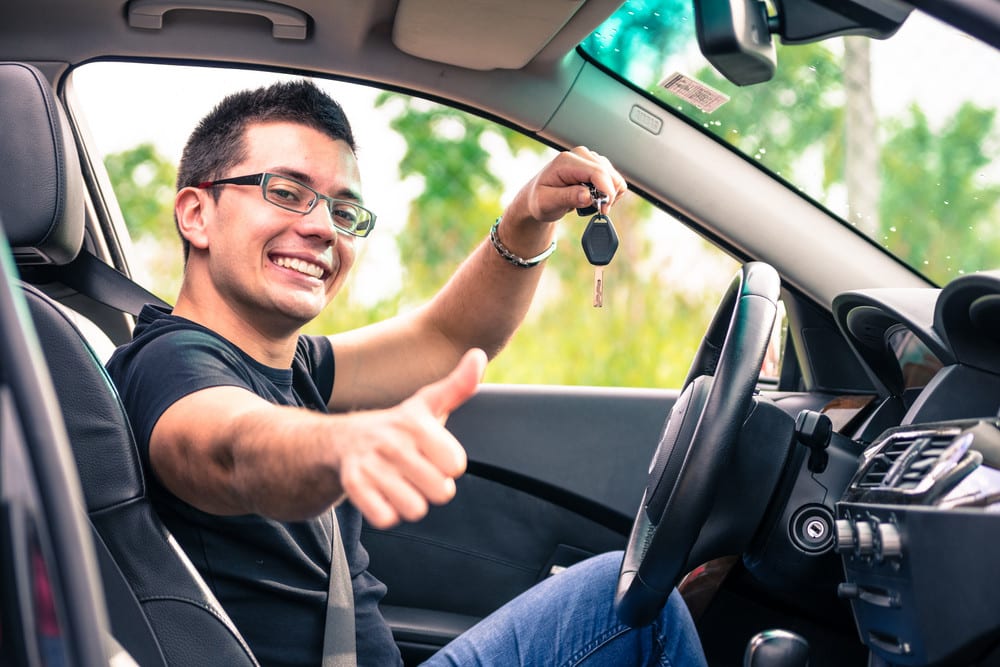

The freedom to set your own schedule and make extra money as a rideshare driver sounds enticing. You might even drive a company car to avoid adding extra stress to your own vehicle. Whenever you’re driving, being on the road means risking the safety of you and any passengers in your car. The risk increases for Uber, Lyft, and other rideshare company drivers for 4 reasons:
They may be using their personal car for commercial purposes.
They are on the road more frequently, which increases the likelihood of an accident and the driver’s susceptibility to fatigue from long hours.
They are liable for medical and damage expenses for themselves and passengers should an accident occur.
The risk of a commercial lawsuit increases.
Personal car insurance doesn’t usually cover any incidents that occur while you’re doing your ridesharing work. Your policy may even be canceled if you fail to let your insurer know of its use for ridesharing. Rideshare insurance will cover personal use and adds coverage when drivers are signed into the app, but it does have gaps.
Regardless of whether or not you own the car you drive for work, every car driving in the United States needs insurance. If you're a rideshare driver or are considering becoming one, you’ll need to make sure you’re covered under the right insurance.
What do Rideshare Companies Offer?
Both Uber and Lyft offer insurance for their drivers, as do some other rideshare companies, but it’s limited depending on whether the driver is waiting or giving a ride. Most drivers depend on their personal policy and the company’s policy at different times. Basic rideshare insurance is covered under periods 0-3:
Period 0: App is off. At this time, you’re not giving rides and are covered by your personal policy.
Period 1: App is on and you’re waiting. While waiting for a ride request, your personal policy will not cover you without an endorsement from your ridesharing company. Uber and Lyft offer small quantities of liability coverage at this time.
Period 2: You’ve accepted a request. Once you’ve accepted a request and are on your way to pick up your riders, the rideshare company’s policy fully covers you.
Period 3: You’ve picked up your passengers. While driving passengers, you are fully covered by the rideshare company.
A variety of car insurance providers offer insurance to rideshare drivers. It can even be added to an existing policy so long as you fully disclose your position. If you already have a commercial auto insurance policy, you do not need separate rideshare coverage. If you drive in a state that doesn’t offer a rideshare policy, you’ll need to purchase a commercial insurance policy, which can be pricey, to stay fully covered.
How to Purchase Rideshare Insurance:
Not all insurance companies provide rideshare insurance policies, and it’s never stand-alone coverage, but an add-on to current coverage. It’s best to compare rates between companies anyways but follow these 3 steps for finding and purchasing the best coverage:
Inform your personal auto insurance provider of your rideshare driver status immediately to avoid being dropped.
Find the gaps in your rideshare company’s policy and your personal policy. Liability coverage will vary, with Uber and Lyft both providing up to $1 million in coverage compared to smaller and newer companies.
Check whether your current insurer can cover the gaps in the rideshare company’s coverage. They may be able to offer you a commercial policy if not a rideshare one.
Companies that provide insurance quotes for rideshare drivers include, Allstate, Geico, State Farm, Farmers, and more.
Filing a Claim for an Accident:
Should you wind up in an accident while on your way to pick up passengers or while driving passengers, you may qualify for rideshare company claims. These means you can make claims during period 2 and 3 situations. You can file a claim for the following 4 circumstances:
Uber and Lyft cover medical expenses and damages in driver-caused accidents during periods 2 and 3.
Comprehensive and collision coverage can be used from the rideshare company so long as you also have such coverage on your personal auto policy.
A period 1 accident means you’ll need to file a claim with your personal policy provider unless the rideshare company or state law has other specifications. Most rideshare companies will help with coverage if the claim is denied or you do not receive full reimbursement.



